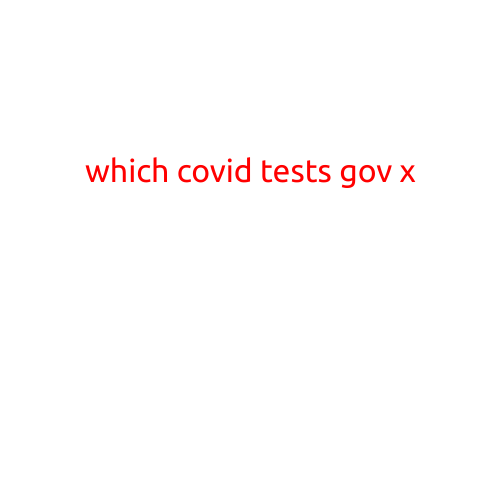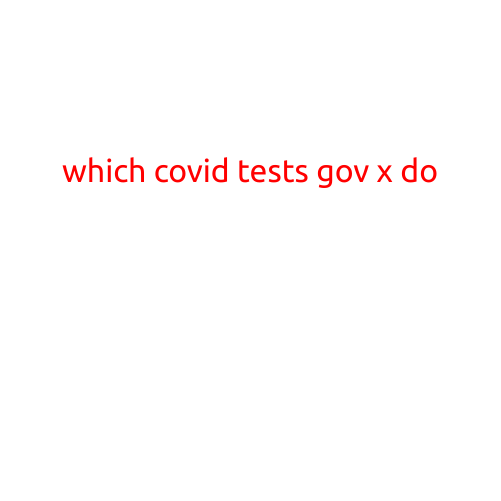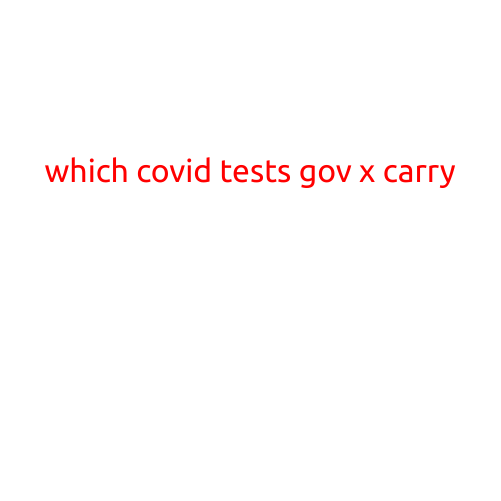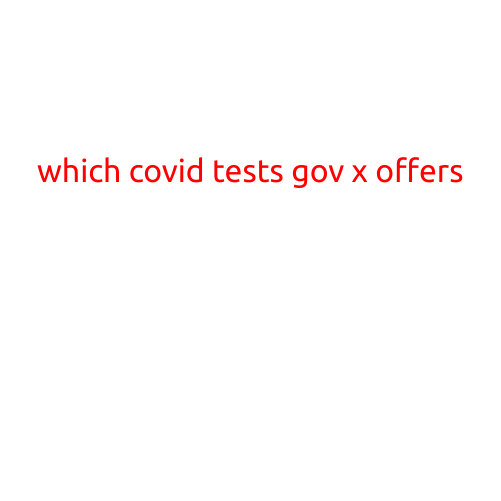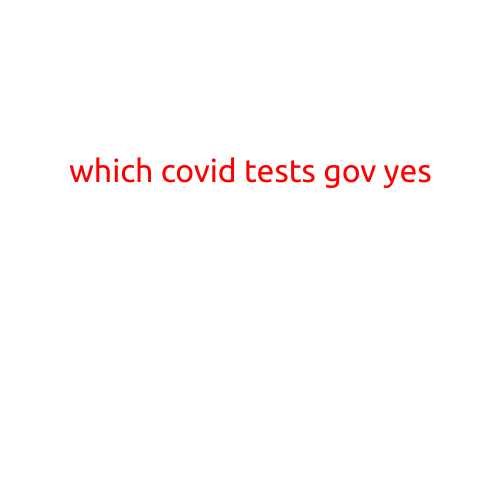
Which COVID Tests Get the Government’s Seal of Approval?
As the COVID-19 pandemic continues to evolve, governments around the world are working to develop and deploy a range of testing options to help identify infected individuals and prevent the spread of the virus. But with so many different tests on the market, it can be daunting to determine which ones have the government’s stamp of approval.
In this article, we’ll break down the different types of COVID-19 tests that are currently recognized and endorsed by government agencies, as well as the criteria they use to evaluate these tests.
Rapid Antigen Tests
Rapid antigen tests are a type of immunoassay that detect the presence of viral antigens, rather than the virus itself. These tests are often used at the point-of-care, meaning they can be performed in a doctor’s office, clinic, or even at home.
The World Health Organization (WHO) has approved several rapid antigen tests for COVID-19, including those from Abbott, Biomerieux, and Roche. These tests have been shown to be effective in detecting the virus, but they are not as sensitive as polymerase chain reaction (PCR) tests, which we’ll discuss later.
PCR Tests
PCR tests, also known as molecular tests, detect the genetic material of the virus, rather than its antigens. These tests are considered to be the gold standard for COVID-19 diagnosis, as they can detect even small amounts of viral RNA.
The Centers for Disease Control and Prevention (CDC) has approved several PCR tests for COVID-19, including those from Cepheid, Roche, and Thermo Fisher Scientific. These tests require laboratory equipment and trained personnel, but they are highly accurate and can detect even asymptomatic individuals.
Antibody Tests
Antibody tests, also known as serology tests, detect the presence of antibodies in an individual’s blood, which are produced in response to infection. These tests are not used to diagnose active infection, but can be used to determine if an individual has been infected in the past.
The CDC has approved several antibody tests for COVID-19, including those from Abbott, Bio-Rad, and Roche. These tests are not as sensitive as PCR tests, but can still provide valuable information about an individual’s immune status.
Government Agencies’ Criteria for Test Approval
So how do government agencies determine which COVID-19 tests to approve? The process typically involves several steps, including:
- Validation: The test must be validated against a reference standard, such as a PCR test.
- Sensitivity: The test must be able to detect the virus at a specific threshold, usually 50% or higher.
- Specificity: The test must be able to distinguish between COVID-19 and other illnesses.
- Accuracy: The test must be able to provide accurate results, including a low rate of false positives and false negatives.
- ** Manufacturing**: The test must be manufactured by a reputable company with good quality control processes.
Conclusion
As the COVID-19 pandemic continues to evolve, it’s essential to have reliable and accurate testing options. By understanding which COVID tests get the government’s seal of approval, individuals can make informed decisions about testing and help prevent the spread of the virus.
Whether you’re looking for a rapid antigen test for point-of-care diagnosis or a PCR test for laboratory-based diagnosis, there are many options available to help combat the pandemic.

